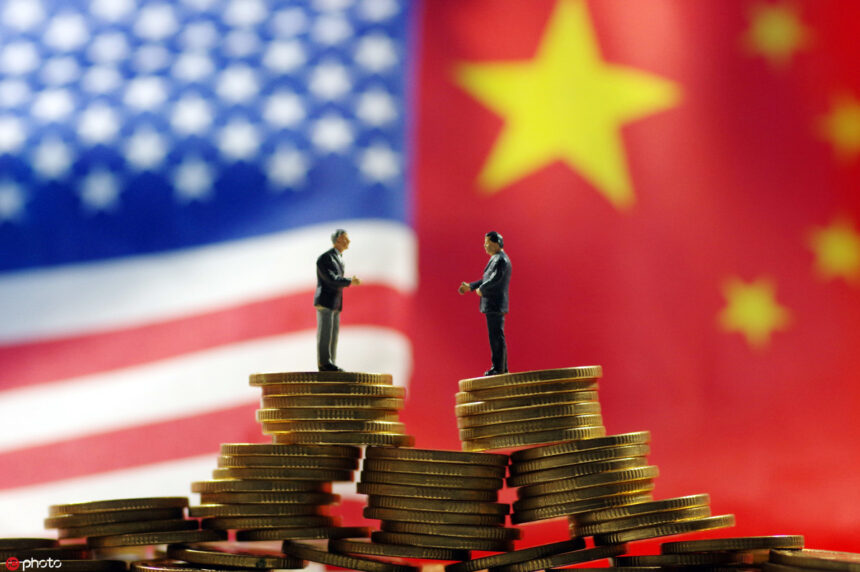The United States has escalated its technological standoff with China, adding more than 50 Chinese companies and nearly 30 other entities from multiple countries to its export blacklist, a move aimed at curbing Beijing’s advances in artificial intelligence (AI), supercomputing, and military capabilities.
The U.S. Department of Commerce’s Bureau of Industry and Security announced the decision on Tuesday, marking the first significant trade restriction under the newly elected Trump administration.
The blacklist, formally known as the Entity List, now includes over 80 organizations, with the majority based in China. Among the high-profile additions are six subsidiaries of Inspur Group, a leading Chinese cloud computing and big data service provider already targeted in 2023.
Other notable entries include entities accused of supporting Huawei, the telecom giant blacklisted in 2019, and companies linked to China’s military-industrial complex. Firms from Taiwan, Iran, Pakistan, South Africa, and the United Arab Emirates were also swept up in the action, accused of facilitating Beijing’s ambitions through indirect ties.
Forces Behind the Chinese Blacklist
The Commerce Department cited national security and foreign policy concerns as the driving forces behind the blacklist. “These entities have been involved in activities contrary to U.S. interests, including the development of advanced AI and supercomputers for military end-users in China,” a department spokesperson said.
Specifically, 11 Chinese companies and one Taiwanese firm were singled out for their role in creating high-performance AI chips and exascale supercomputing systems, technologies capable of processing vast datasets at unprecedented speeds—tools Washington fears could bolster China’s hypersonic weapons and surveillance capabilities.
An additional 27 Chinese entities were flagged for attempting to acquire U.S.-origin technology to support Beijing’s military modernization, while two others faced penalties for supplying Huawei and its chipmaking arm, HiSilicon, in violation of existing sanctions.
The inclusion of such a broad swath of firms underscores the U.S. determination to choke off China’s access to cutting-edge technology amid an intensifying global race for supremacy in AI and quantum computing.
China’s Foreign Ministry swiftly condemned the move, accusing Washington of “weaponizing trade and technology” to suppress its rise. “This is a typical act of hegemonism,” ministry spokesperson Guo Jiakun said at a Wednesday briefing in Beijing.
“The U.S. is abusing sanctions lists to unjustly target Chinese enterprises. We will take necessary measures to safeguard their legitimate rights.” Beijing has not yet outlined specific retaliatory steps, but past responses—such as tariffs on U.S. goods and blacklisting American firms like PVH Corp and Illumina earlier this year—suggest a tit-for-tat escalation could be imminent.
China’s Races to Close the Gap
The blacklist effectively bars U.S. companies from selling goods or services to the listed entities without a special license, which experts say is rarely granted. For American tech giants like Nvidia and AMD, already navigating a web of export controls, the move raises fresh questions about compliance and lost revenue.
When Inspur Group was first targeted in 2023, its U.S. partners faced scrutiny over lingering ties—a scenario that could repeat with its subsidiaries now in the crosshairs.
Analysts see the blacklist as part of a broader U.S. strategy to maintain its technological edge as China races to close the gap. “This highlights Washington’s growing anxiety over Beijing’s tech rise,” said Dr. Li Mei, a trade expert at the University of Hong Kong.
“It’s not just about military applications—AI and supercomputing are the backbone of future economies. The U.S. wants to slow China down at any cost.”
The timing of the announcement, just months into President Donald Trump’s second term, signals a continuation of his hardline stance on China. During his first administration, Trump imposed sweeping tariffs and export bans, sparking a trade war that rattled global markets.
This latest action, paired with recent tariff hikes on Chinese imports, suggests the White House is doubling down on economic decoupling—a policy that has drawn both praise and criticism.
Critics warn of collateral damage. “These blanket restrictions risk alienating allies and disrupting global supply chains,” said James Carter, a senior fellow at the Center for Strategic and International Studies. Taiwanese firms, for instance, caught in the net due to their China ties, could strain U.S. relations with a key semiconductor hub. Meanwhile, Beijing’s vow to retaliate threatens American businesses still operating in China’s lucrative market.
For now, the blacklisted companies face an uncertain future. The Beijing Academy of Artificial Intelligence (BAAI), a non-profit added to the list, expressed “shock” at its inclusion, calling it a scientific institution unfairly targeted. Inspur subsidiaries, meanwhile, join a growing roster of Chinese tech players forced to pivot away from U.S. suppliers—a shift that could accelerate China’s push for self-reliance in chips and software.
As the U.S.-China tech war deepens, the global ramifications are becoming harder to ignore. With both sides digging in, the battle for technological dominance shows no signs of cooling—leaving businesses, governments, and consumers worldwide to navigate the fallout.
Reporting by Reuters, CNBC, and South China Morning Post contributed to this article.

Geoff Thomas is an award winning journalist known for his sharp insights and no-nonsense reporting style. Over the years he has worked for Reuters and the Canadian Press covering everything from political scandals to human interest stories. He brings a clear and direct approach to his work.














